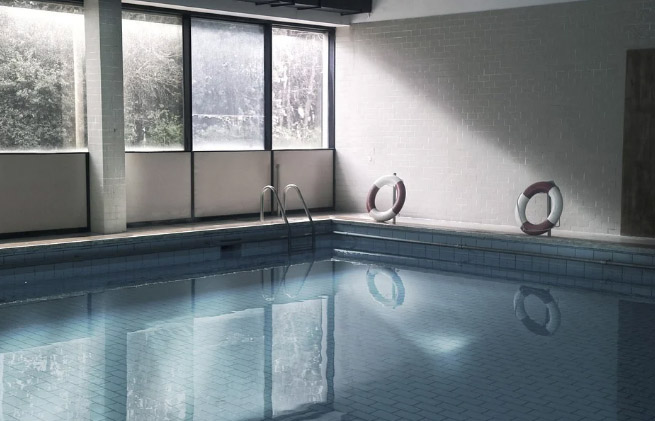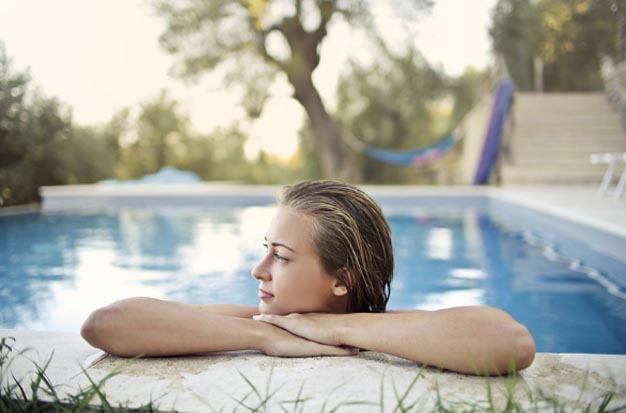How Long Does It Take to Heat Swimming Pool Water?
The amount of time needed to heat your pool or spa depends on a number of variables, including air temperature, the size of the heat pump, the size of the pool or spa, the current water temperature, the desired water temperature, and whether a solar blanket is being used. Below, we take a closer look at each of these elements.
How Much Time Does It Take To Heat A Swimming Pool?
A swimming pool heat pump can quickly heat your pool to a swimmable 28° C for a standard 32 m2 pool from a cold water standing start at the beginning of the swimming season in 12-48 hours.
Whether or not you have a pool cover affects how long it takes the pool heat pump to heat the water. Furthermore, where you reside affects this: if you live in Sydney residents should anticipate a wait time of no more than 24 hours; Melbourne residents should anticipate a wait time of one to two days.
Factors That Effect The Time To Heat The Swimming
Heat Pump Size
British Thermal Units (BTU) per hour is used to size pool and spa heaters. One BTU increases the temperature of one pound of water by one degree Fahrenheit (0.6 degrees Celsius). Since 8.34 pounds of water equals one gallon, one degree Fahrenheit (0.6 degrees Celsius) is added to the temperature by 8.34 BTUs. In an effort to save money, consumers frequently buy heat pumps that aren’t as powerful as they need them to be. However, these units cost more to operate and take longer to heat your pool.
Pool Heat Loss
Pool heat pumps may be capable of warming your pool by approximately 0.5ᵒ C per hour, but the time required for it actually to warm your pool to a pleasantly swimmable temperature depends on the hourly rate at which your pool is losing heat at the same time.
Through evaporation alone, an uncovered 32 m2 pool in summer will lose heat at a rate of around 0.06 More than that at night and even more if your pool is near a windy area; in fact, even a light breeze of about 10 km/h will almost double the rate of heat loss.
Additionally, the cooler nighttime temperatures in spring and autumn cause greater heat loss from the pool’s surface water. Overall, this has the result that your pool’s water temperature isn’t receiving the full warming benefits from your pool heat pump.
Ambient Air Temperature and Humidity
Like a refrigerator, pool heat pumps operate in reverse. Warm air is drawn into the evaporator, which houses a piping system filled with a non-CFC refrigerant, by the heat pump’s fan. The heat from the warm air instantly superheats the refrigerant, which has a boiling point of -26o C. This heat is then transferred to the pool water flowing through the heat pump.
Although the majority of electric heat pumps can function effectively in the air as cold as 7°C, below that point there is a risk of ice forming on their condensers, which could lead to mechanical failure.

The Price Of Heating A Pool Is Another Matter.
This is yet another frequently asked question, and there are once more a number of variables to consider. The constant in the equation is the therms per hour. One therm equals 100,000 BTUs per hour. Thermometers are a popular way for gas companies to measure how much gas is being used. A 400,000 BTU heater will therefore consume four therms per hour of operation. The number of terms times your gas price would be the equation. The following results would be obtained if your gas costs $1.20 per therm and we used the heating time from above at 9.91 hours: 4 x $1.20 = $4.80.
$4.80 x 9.91 hours = $47.57 is what it would cost you to heat the water initially. Since you are maintaining the heated water and the factors mentioned above can greatly affect how warm your pool stays, the maintenance cost would be lower.
Are You Buying A Heater Or A Heat Pump?
Your pool’s heating time will vary depending on a few different factors. Have you decided if a heater or a heat pump is what you want to buy? Indeed, they both heat your pool, but they go about it very differently. Let’s investigate more thoroughly.
Because they don’t produce their own heat, heat pumps are unusual pieces of machinery. Instead, it uses ambient air heat to warm the water in your pool. You can understand how this might be an issue if you reside in a colder climate. When the temperature is above 50 degrees Fahrenheit, heat pumps perform at their best. Heat pumps are unable to function effectively below that temperature. Therefore, in order to heat their pools, pool owners must run heat pumps longer. Because of this, before investing in a heat pump, it’s critical to take the typical temperature in your area into account, especially during the colder months.
It takes more energy to heat the pool with a heat pump that is too small. Increased operating costs and decreased efficiency come with longer running times. It’s a bad situation all around, so you decide to buy a gas heater in its place.
Conclusion
The greatest benefit of heaters and heat pumps is that they make it possible for pool owners to use their water to the fullest, even in unfavorable conditions. Arriving your party guests at an icy pool is not ideal. Planning ahead is something we always advise. It is crucial to keep in mind that even after you have finished your calculations and have a good idea of how long it takes to warm your pool, you are still unable to account for other factors like the outside temperature, efficiency, and heat loss through evaporation. When estimating how long your heater or heat pump should run, it’s always a good idea to round up. This provides you with a small safety margin for unforeseen variables.
